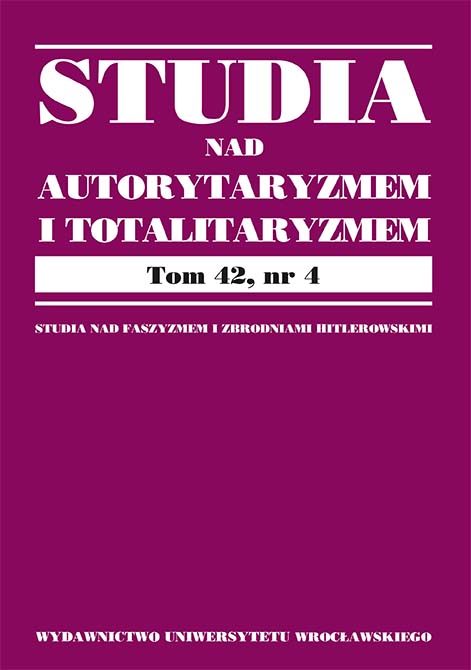

Articles

The crime of discrimination on the grounds of religion referred to in article 119 § 1 of the Penal Code is one of the most serious crimes listed in the chapter “Crimes against humanity.ˮ This provision penalises behaviour consisting of the use of violence or an unlawful threat, among other measures, towards people because of their religious beliefs. Does the use of violence or an unlawful threat while making a declaration of will to leave the Church always justify applying this provision? Will it be permissible to make a charge under this provision against those who leave the Church if violence or unlawful threat is the result of facts connected with the course of the apostasy procedure? And if not, is it the case that the accusation under article 119 § 1 of the Penal Code is not an expression of religious persecution of people leaving the Church, the consequence of which is their victimisation?
An attempt to answer the above questions was a case study in which on the basis of the mentioned provision, people leaving the Roman Catholic Church were charged with the use of violence and an unlawful threat against a priest who refused to accept an act of apostasy. The aim of the article was therefore to examine the real victimising consequences of the application of this provision to persons who have left the Church. The fundamental question underlying the considerations made in the text refers to the effects of the accusation under article 119 § 1 of the Penal Code: whether its improper application is a victimising factor.
All considerations has been embedded in a theoretical framework relating to the premises for the application of the aforementioned article, and in a critical analysis (in view of conducted interviews with people who have submitted apostasy acts) of decisions taken in the preparatory proceedings. One of the analysis’ main tasks was to determine the level of harm to people leaving the Roman Catholic Church. The conducted research allowed to state that the actions taken in the analysed case by law enforcement authorities are discriminatory, and thus victimising persons leaving this Church. In the presented case, the following victimising factors were visible: so-called “hate speech” in the mass media (right-wing television and online media presented a distorted image of the event as an “attack on the Church”); “pejorative labelling” of persons leaving the Church through biased manipulation of facts and making them public in a distorted way by Church representatives; abuse of power by law enforcement authorities through accusation under article 119 § 1 of the Penal Code, contrary to all evidence gathered in the case, not respecting human dignity, and violating fundamental human rights to humane treatment and respect for liberty and personal security.